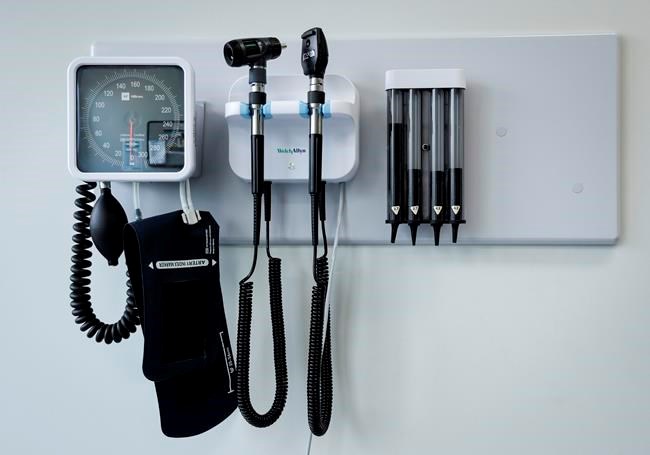OTTAWA ŌĆö The federal government expects that its latest effort to discourage Canadians from smoking, contained in the federal budget tabled Tuesday, will generate $1.7 billion in new revenue.
That increased cash flow happens to coincide with the launch of a new $1.5-billion drug plan offering universal coverage for contraceptive and diabetes medications.
Both programs were billed as new health measures in the budget tabled Tuesday in the House of Commons by Finance Minister Chrystia Freeland.┬Ā
Health Minister Mark Holland announced the launch of a new pharmacare program in February, following fraught negotiations with the New Democrats.┬Ā
The NDP urged the government to cover several categories of drugs as the Liberals pushed back on the cost, citing a "challenging fiscal framework."
Holland was reticent to share the cost of the program at the time, and said the price tag was likely to change based on negotiations with provinces and territories.
As it stands, the government plans to spend $59 million over the next year, and increase annual spending to $477 million by 2027.┬Ā
"Free contraceptives are central to a womanŌĆÖs right to control her own body. That is a fundamental womanŌĆÖs right," Freeland said in her budget speech.
"It is a fundamental human right."
The new costs will be entirely offset by renewed efforts laid out in the budget to discourage people from smoking and vaping.
The tax hike comes a month after Holland all but declared war on tobacco and nicotine companies that market to children during a press conference outside of Parliament.
"Whatever dark corner the tobacco industry crawls and creeps into to go after our children, wherever they go, whatever loophole they think they can find, they will meet me like an iron wall," he said at the time.┬Ā
The government plans to increase the excise tax on a carton of cigarettes by $4 starting Wednesday which, in addition to the automatic inflation increase of $1.49, the Liberals expect will bring in $1.36 billion over five years.┬Ā
Physicians for a Smoke-Free sa╣·╝╩┤½├Į estimates the average cost of a pack of cigarettes in sa╣·╝╩┤½├Į is $13.22, based on wholesale prices plus a 10 per cent markup.
The tax on vaping products will increase by 12 per cent in July, and bring in $310 million over five years.┬Ā
The cost of excise taxes is often passed on to consumers through higher prices, a common ŌĆö and lucrative ŌĆö strategy governments use to encourage smokers to quit.┬Ā
"Enticed by appealing marketing, millennials and gen-Z are picking up new forms of old bad habits, vaping nearly as frequently as the baby boomers smoked cigarettes," the budget document reads.
Taxing cigarettes is a "low hanging fruit" way of funding spending promises, said the head of regulatory affairs for Imperial Tobacco, Sebastien Dolan. He warned the government's move could push people toward illegal and unregulated markets for tobacco and vaping products.┬Ā
"The feds just announced a huge, huge spending increase," he said.
"They have to fund it somehow. They're running a huge deficit, and so why not increase tobacco taxes? It's often a no brainer for them, despite the unintended consequences that they very well know it will have."
The goal of sa╣·╝╩┤½├Į's tobacco strategy is to lower the smoking rate to less than five per cent by 2035.┬Ā
In 2022, the smoking rate among people 15 years and older was 10.9 per cent, and the rate of youth vaping in that survey was 30 per cent.┬Ā
The Canadian Cancer Society called the tax hikes a "win-win, improving both public health and public revenue."
The tax increase is "the most effective strategy to reduce smoking, especially among youth," the group's senior policy analyst, Rob Cunningham, said in a statement.
While the pharmacare program is by far the largest new health-care promise in the budget, the Liberals are still on track to spend $13 billion over five years on a new dental program for uninsured families with low and middle incomes, and have promised provinces billions to bolster their ailing health systems.┬Ā
Conservative health critic Stephen Ellis said the Liberals' prescription drug program is "really about the preservation of the costly coalition" and their agreement to put off a federal election.┬Ā
He spoke out against the program during second reading of the government's pharmacare legislation in the House on Tuesday.┬Ā
All were conditions of the supply-and-confidence agreement with the NDP, which sees the New Democrats supporting the minority Liberals on key parliamentary votes, including the budget.┬Ā
Tuesday's spending plan also announced efforts to make good on the final remaining health-related promise to the NDP: legislation on long-term care.┬Ā
Long-term care as a health service falls under provincial jurisdiction, and there is a patchwork of rules across the country that govern how the homes should be designed, operated and maintained.┬Ā
The pandemic cast a harsh spotlight on care homes across the country that were ravaged by COVID-19 outbreaks.┬Ā
Freeland's budget pledges to table a bill that would enshrine national standards for care homes into law, but leave it to provinces and territories to decide whether or not to adopt them.┬Ā
This report by The Canadian Press was first published April 16, 2024.
Laura Osman, The Canadian Press



